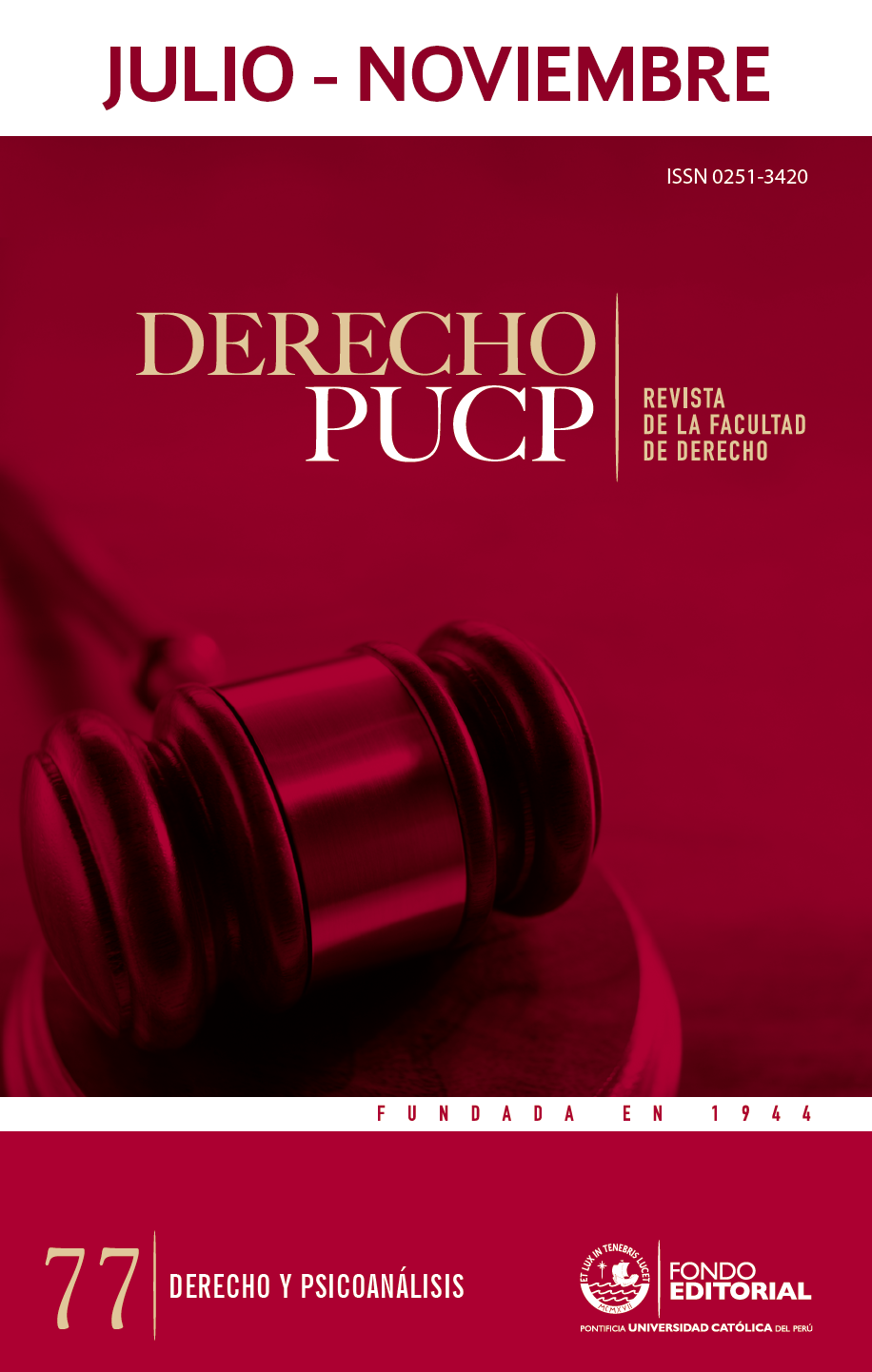¿El derecho en el diván del analista?: los usos de la teoría psicoanalítica en la academia estadounidense contemporánea
DOI:
https://doi.org/10.18800/derechopucp.201602.003Palabras clave:
Freud, teoría psicoanalítica del derecho, estudios críticos del derecho, LacanResumen
En el contexto jurídico de los Estados Unidos, el psicoanálisis es visto por la mayoría de académicos (y jueces) como anticuado, incluso anticientífico, y hay poca cabida para el conocimiento psicoanalítico en los tribunales de justicia estadounidenses. Sin embargo, hay algunos académicos que continúan realizando labor teórica en la tradición convencional freudiana, así como numerosos teóricos críticos del derecho que han adoptado la visión psicoanalítica de Jacques Lacan en sus críticas al derecho. Este es un breve estudio de cómo dichos académicos conciben el derecho en términos psicoanalíticos. ¿Se está analizando al juez? ¿O se está analizando a los abogados, o a los estudiantes de derecho? ¿Se percibe el derecho en sí como un paciente con subconsciente y con síntomas? ¿O se está analizando los textos jurídicos como textos que poseen una dimensión inconsciente, como una ideología? En este ensayo identifico ejemplos de los cuatro contextos y concluyo que estos académicos, a pesar de su orientación teórica, tienen metas prácticas para el derecho en mente.
Descargas
Descargas
Publicado
Cómo citar
Número
Sección
Licencia
Derechos de autor 2016 Derecho PUCP

Esta obra está bajo una licencia internacional Creative Commons Atribución 4.0.




